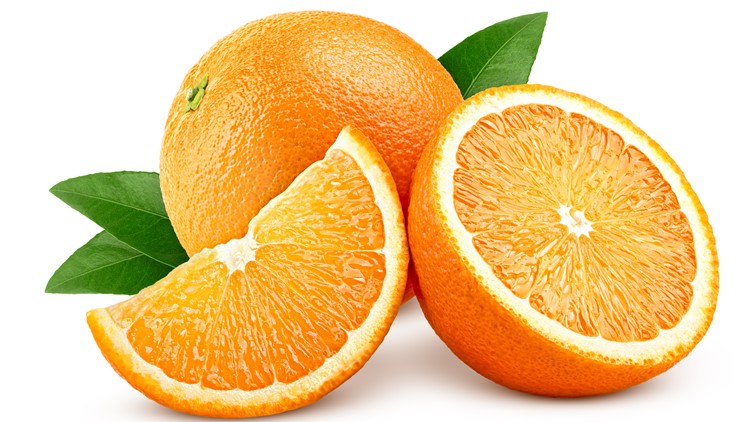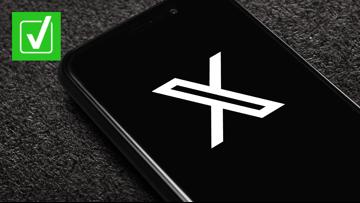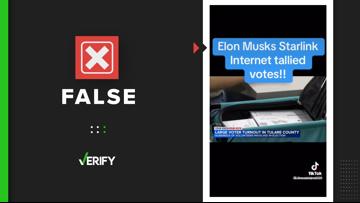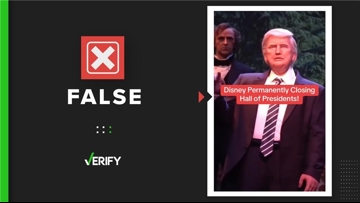For several months, TikTok has been full of different recipes, tricks and trends claiming to renew your sense of smell after recovering from COVID-19.
One was a recipe that required burning an orange peel. Another was a trend in which a friend had to flick the back of your head.
TikTok users have claimed mixed success on these tricks, but that’s probably because smell is a bit more complicated than something that can be fixed upon a single trick.
THE QUESTION
Do these TikTok trends show real ways people can recover their sense of smell after losing it due to a COVID-19 infection?
WHY WE ARE VERIFYING
These trends originated from singular viral videos with more than a couple million views each. At the very least, they show people are desperate to get their sense of smell and taste back.
THE ANSWER
While we won’t stop you if you want a friend to flick the back of your head, there’s no scientific evidence to back these methods as remedies. There are, however, a number of treatments doctors recommend such as smell training.
WHAT WE FOUND
The first viral smell remedy was posted in December when a user on TikTok showed a recipe that involved cooking an orange until the peel burned, unpeeling it and mixing the orange itself with brown sugar. That earned nearly four million likes on TikTok.
The second trend earned two and a half million likes and described a trick in which a friend flicked the back of your head while you first held your finger to your forehead and then held your finger to your tongue.
“With regard to the orange method, unfortunately this is not backed by science, despite its increasing popularity,” Dr. Nicholas Rowan, an assistant professor at Johns Hopkins’ Department of Otolaryngology-Head and Neck Surgery said in an email. “As far as the tongue-flicking method is concerned, this unfortunately does not have any scientific evidence, and I am unaware of the mechanism of how it would work. It is plausible, that smell returns on its own, and so maybe there is some placebo effect.”
Dr. Rowan agreed that the orange recipe was similar to a treatment that he described as “backed by the highest level of evidence-based recommendation that we have” called “smell training.”
A study in which Dr. Rowan was one of seven researchers who conducted it determined “olfactory training is a recommendation for the treatment of PVOD [post-viral olfactory dysfunction].” The study also concluded, “the use of short‐term systemic and/or topical steroids is an option in select patients after careful consideration of potential risks of oral steroids. Though some pharmacological investigations offer promising preliminary results for systemic and topical medications alike, a paucity of high‐quality studies limits the ability to make meaningful evidence‐based recommendations for the use of these therapies for the treatment of PVOD.”
Basically, the researchers recommended smell training as the way patients should try to recover their sense of smell after they’ve lost it to a virus. The researchers added topical steroids were an option once they considered the risks involved and that there isn’t any meaningful evidence to support the use of other methods, despite some promising early results.
A UAB health and medicine article described smell training as consisting of “exposure to certain scents in a repeated nature over many weeks. Patients smell four odor categories — flowery, fruity, aromatic and resinous — every day for 12 weeks and potentially up to six months."
The Southern California Sinus Institute has a page that describes how you can do smell training at home using fragrance strips. The institute said, “it’s recommended that you smell train at least twice a day, once in the morning and once in the evening. Sniff the fragrance for 10 seconds and avoid sniffing too hard or too long. Also, be sure to sniff other things such as spices, flowers, or other fragrances that are safe to smell.”
Story continues below this video. Check out previous stories on the VERIFY YouTube channel.
Smell training treatments take time because the issues viruses like the one that causes COVID-19 create for your sense of smell aren’t as simple as a stuffy nose.
“We do not always know why these viruses cause loss of smell, but we do know that the SARS-CoV-2 virus appears to infect the cells that support the olfactory nerve,” Dr. Rowan said. “Some other respiratory viruses have been shown to infect the smell nerve itself, but this has not been the case for COVID-19. Moreover, it appears that although patients do have subjective loss of taste, most of what patients experience is significant and profound smell loss, and instead, it is actually a change in the perception of flavor that they are experiencing rather than a true loss of taste.”
So while smelling the strong scent of a burning orange can help you in the process of recovering your smell, a single sniff is unlikely to be the silver bullet that allows the odors and aromas to flood back into your nose. And your sense of “taste” isn’t likely to recover until your smell does because our perception of flavor is influenced by our sense of smell.
But it’s possible for any of these treatments to work as a kind of placebo if your sense of smell has just slowly recovered over time without you noticing.
“Patients with post-viral smell loss have roughly a 60-80 percent chance of regaining some of their smell function at one year,” Jessica Grayson, an assistant professor at UAB and a medical doctor, said in the previously mentioned UAB article. “However, people with traumatic injuries often do not regain smell.”
So whether you smell burned oranges, get flicked in the back of the head or do nothing at all, it’s likely your sense of smell will eventually recover with time, anyway.
Something you’d like VERIFIED? Click here to submit your story.













